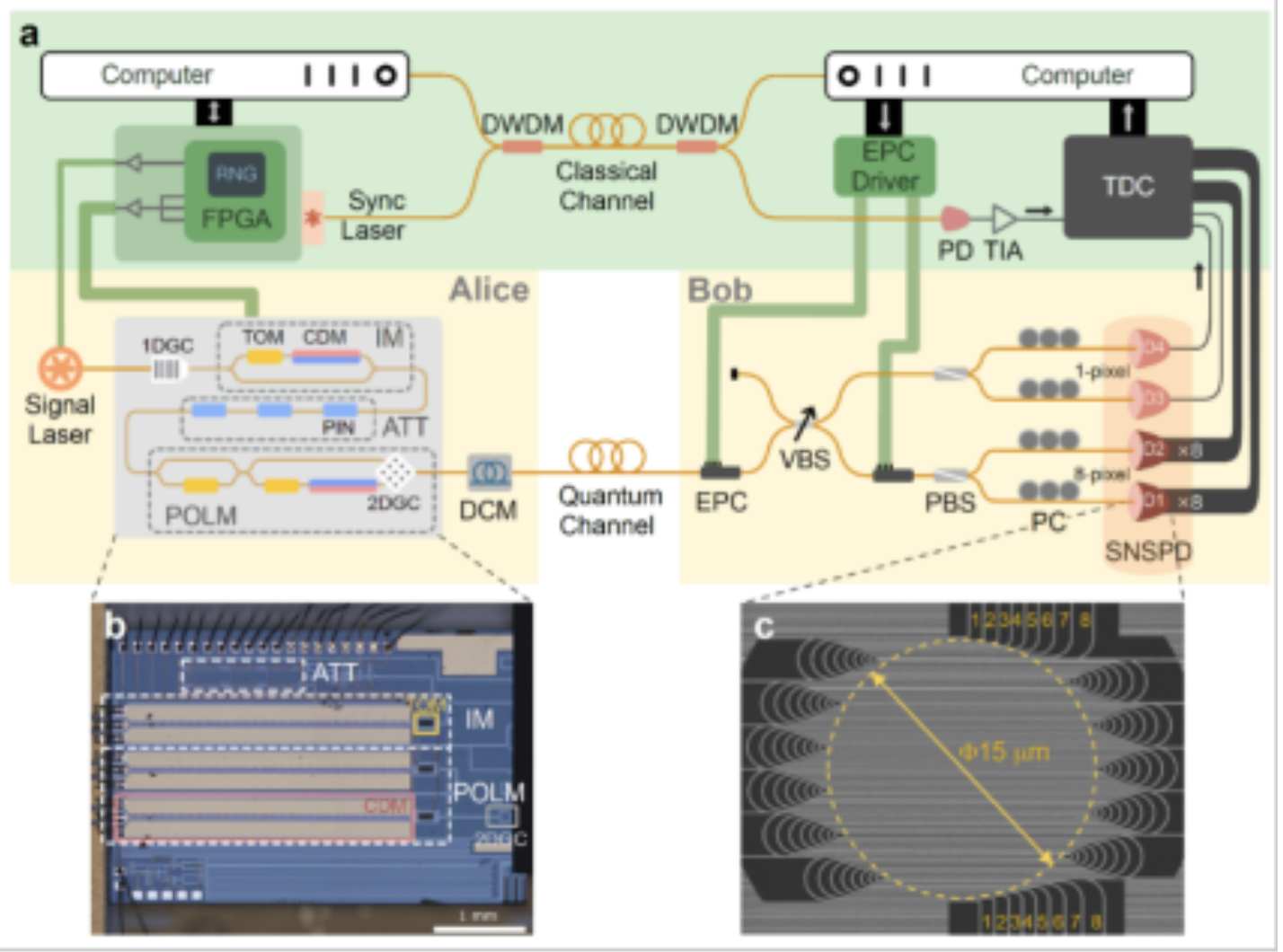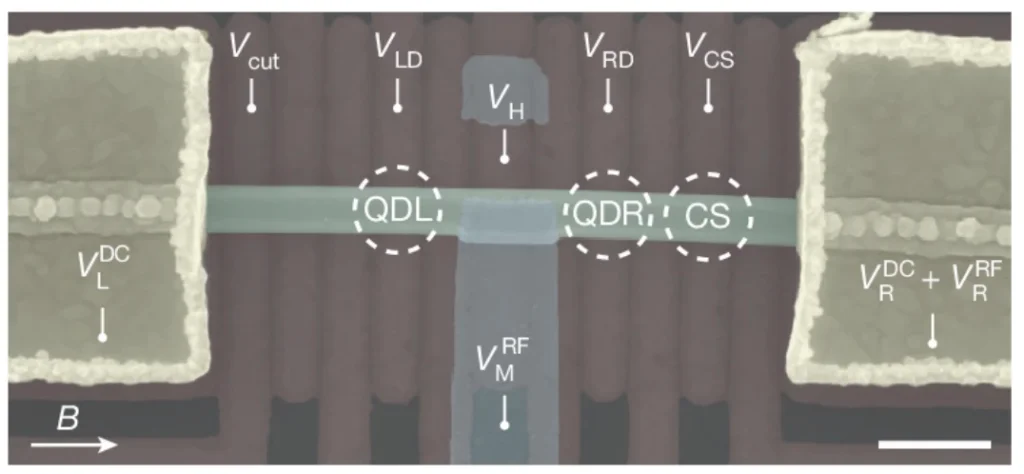Insider Brief
- Chinese scientists hey have developed a high-speed quantum key distribution (QKD) system to generate secret keys at a rate exceeding 110 Mb/s over a 10 km standard optical fiber.
- They reported their findings in Nature Photonics.
- Limitations still exist with QKD and they report that the system they developed needs special care against side-channel attacks.
Chinese scientists claimed to have set a new world record for a critical element of quantum key distribution (QKD), the country’s media sources are reporting.
According to CGTN, scientist report in Nature Photonics that they have developed a high-speed quantum key distribution (QKD) system to generate secret keys at a rate exceeding 110 Mb/s over a 10 km standard optical fiber.
Xu Feihu, a professor at the University of Science and Technology of China (USTC), said the advance is important to the large-scale application of quantum communication and quantum network .

Before this, the highest secret key rate (SKR) among the international academic community was about 10 Mb/s over a 10 km standard optical fiber, according to Xu.
Familiar names were among the list of researchers in the project. Chinese physicist Pan Jianwei, known as China’s “father of quantum,” and Xu Feihu led the team that developed the QKD system that is able to generate secret keys at a record high SKR of 115.8 Mb/s over a 10 km standard optical fiber, and distribute keys over up to 328 km of ultralow-loss fiber. The team added that the system has maintained stability for more than 50 hours.
QKD could pave the way for secure communication, but the rate at which secret keys are generated must be robust. That rate, so far, has been limited to about a few megabits per second and therefore limits the creation of a QKD system to maintain secure communications, according to CGTN.
The team reports in the study that limitations still exist.
They write: “We note the recent progress in high-rate continuous-variable QKD, but the practical issues–including the finite-key security proof against general attacks, and the fast implementation of information reconciliation for discrete modulation continuous-variable QKD—remain unresolved. Our implementation and security analysis do not consider the device imperfections. In practice, however, our system needs special care against side-channel attacks.”
The Shanghai Institute of Microsystem and Information Technology of the Chinese Academy of Sciences, the Jinan Institute of Quantum Technology and the Harbin Institute of Technology collaborated on the project.
For more market insights, check out our latest quantum computing news here.















